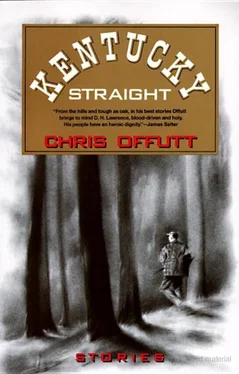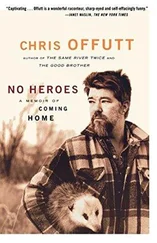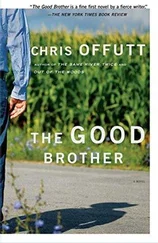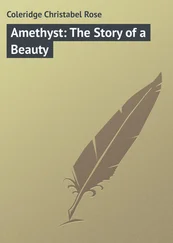Chris Offutt - Kentucky Straight - Stories
Здесь есть возможность читать онлайн «Chris Offutt - Kentucky Straight - Stories» весь текст электронной книги совершенно бесплатно (целиком полную версию без сокращений). В некоторых случаях можно слушать аудио, скачать через торрент в формате fb2 и присутствует краткое содержание. Год выпуска: 1992, Издательство: Vintage, Жанр: Современная проза, на английском языке. Описание произведения, (предисловие) а так же отзывы посетителей доступны на портале библиотеки ЛибКат.
- Название:Kentucky Straight: Stories
- Автор:
- Издательство:Vintage
- Жанр:
- Год:1992
- ISBN:нет данных
- Рейтинг книги:5 / 5. Голосов: 1
-
Избранное:Добавить в избранное
- Отзывы:
-
Ваша оценка:
- 100
- 1
- 2
- 3
- 4
- 5
Kentucky Straight: Stories: краткое содержание, описание и аннотация
Предлагаем к чтению аннотацию, описание, краткое содержание или предисловие (зависит от того, что написал сам автор книги «Kentucky Straight: Stories»). Если вы не нашли необходимую информацию о книге — напишите в комментариях, мы постараемся отыскать её.
Kentucky Straight: Stories — читать онлайн бесплатно полную книгу (весь текст) целиком
Ниже представлен текст книги, разбитый по страницам. Система сохранения места последней прочитанной страницы, позволяет с удобством читать онлайн бесплатно книгу «Kentucky Straight: Stories», без необходимости каждый раз заново искать на чём Вы остановились. Поставьте закладку, и сможете в любой момент перейти на страницу, на которой закончили чтение.
Интервал:
Закладка:
The next day Cody shaved his beard, gave away his rifle, three pistols, two quarts of liquor, and nine decks of greasy cards. He quit cigarettes and coffee. He joined the Clay Creek Church of God. When the pastor died, Cody offered to fill in. Within a month, he’d doubled the small congregation by offering himself as proof of the Lord’s work. “If a grade-A son of a bitch like me can get saved,” he told people, “you can, too.” Cody still had the same hard eyes, but where they used to be mean as a bear, now they looked like he could tame one.
In early spring, he carried a small red Bible east along a dirt road humped in the middle by weeds. Every mile, he nailed fliers to trees, advertising his first tent revival. The woods closed in, narrowing the road to a path that led to Tar Cutler’s house. Tar was old as stone. He lived in a section of woods that people were afraid of, near Shawnee Rock, and was related to half the county. He’d fired shots at VISTA workers, census takers, and tax men. Tar hadn’t been to church since the preachers had given up the Old Testament for the New, and Cody figured if he could save a sinner like Tar, all his kin would join the church.
At the top of the hill Cody walked among the shadowed hardwood trees. He had a flashlight but wanted to save the batteries for the night walk back. The air chilled, smelling of rain. Tar’s house threw shade down the hill, blending with the darkness of the woods. Cody shouted but no one answered. He stomped the porch in case Tar was going deaf, yelled again, and opened the door. A terrible smell rushed out, the nauseating sweet stench of rotten meat. Cody didn’t want to go inside, but felt he had to in case it was a dead dog that Tar hadn’t buried yet. He covered his nose and stepped into an empty kitchen. Spiderwebs spanned the room corners. Tar was lying in his bed, eyes closed, a half-smile on his face. His shoulder and arm had been gnawed by rats.
Cody spat on the floor, angry at having come all this way for nothing. Without Tar’s relatives, the revival would be a flop. The same people would come who always went to church: old people afraid of death, single women with kids, and men trying to please their wives. Cody suddenly grinned. He would tell everyone that just before Tar died, he’d been saved.
Cody dragged a chair beside the bed, surprised to find a tape recorder lying on the blanket. Tar had no phone, plumbing, or electricity, and he wouldn’t own a tape recorder. Cody blew the dust away. Through the clear plastic window he could see a tape. Since Tar couldn’t read or write, Cody thought the tape might be a will. Maybe old Tar had money buried somewhere he wouldn’t mind donating to the church.
He carried the recorder to the porch, rewound the cassette, and pressed the play button. The tape recorder hissed. A man cleared his throat, whinnied a laugh, and said hello. Furniture scraped the floor. The voice began talking, shaky at first, then with more confidence. Cody held the tape recorder in his lap and listened to Tar Cutler speak.

I’m sitting in the bedroom of a house I built fifty-nine years ago. The only color to the hills is pine. We had one snow that mostly melted off, but there’s some places the sun won’t reach, shade strips running east, where snow lays like rope. You can hear sound a long ways off. The end of this ridge has always had my people living on it and I’m the last. My wife died and my kids left. I used to have a truck but I burnt the clutch out using it to plow my garden.
Worst thing I ever did was outlive my wife. Women live hard here. It ain’t that men have it easy, I got a brother had a tree fall on him logging the woods, but women just don’t get the off-time a man does. Anymore, there’s not much left for me but waiting on winter, then waiting on spring. Time piles up like brush. You burn it in the fall and all you remember are the glowing cinders. I got ash heaps everywhere I look.
A road was built twenty-six years ago and instead of hauling things in, it took coal out. When the mines shut, my sons left to find work. Then my girls went off hunting husbands on account of all the boys gone. Now they want me to teach their kids the olden ways, who our family is, and how we lived. Thing is, I ain’t aiming to leave. I visited my second daughter once, up in Ohio, and it didn’t suit me long. She gave me a tape recorder and extra batteries. Said to send them tapes. Telling ain’t hardly the same with no kids to listen at me, but here goes anyhow. I wasn’t born yet, but many a winter night I’ve listened to my grandpaw tell this by the fire. He heard it off his daddy back before the Silver War.
My great-great-aunt Dorothy had a baby girl. Its name was Rose. Dorothy went up Flatgap Ridge, packing little Rose on her back, rigged in a baby board. Dorothy was a full-blood Shawnee Indian and that made Rose half. The spring sun was warm as biscuits. Only Judas tree was in blossom, white and pink, set low against the hardwoods. At the hilltop three ridges joined together, then split off and each followed its own creek. There’s a wind up there, always was. If a man built a windmill to run a generator, he’d have light to burn all night.
Well, that wind blew Dorothy’s smell through the woods, and that smell drew a bear. They sleep hard in the winter and wake up hungry, ready to eat an anvil. The bear tracked her a quarter-mile and Dorothy never heard it. Maybe she was singing loud, I don’t know. It’s as natural for a woman to sing to her baby as a bear to eat meat. You can’t fault the hills for what happens in them. Some people blame God, but I don’t think he is too bad off worried over what goes on here.
That bear, he came busting out of the woods quick as double triggers, running straight for Dorothy. Brush was flying behind it. Dorothy made a half-turn and its front paw swiped at her. She ducked. Its claws grazed her and tore out a little twist of hair. She took off running down the hill but the bear didn’t follow.
At Lick Fork Creek, Dorothy untied the goat-hide harness, let the straps off her shoulders, and swung Rose around in front of her. I reckon Dorothy fainted. Next thing she was laying on the creek bank and claimed not to remember much after. Dogs at her sister’s house raised a ruckus when she came up the holler. Her clothes were brier-tore. She was all over in blood, and her sister thought she fell off a cliff. She calmed Dorothy down and asked what was the matter and Dorothy opened her arms to show her baby. Rose’s head was gone. The bear had tore the head clean off that baby.
Dorothy’s sister had some hen in her, and she took charge right swift. Sent a kid for her husband, Wayne, who was planting taters way top a hillside. Now Wayne was a good man and a hard worker. They say he never had the sense God gave a goose, but I’d say his smart was different, that’s all.
He come off the hill and his wife told him to ride and get his brother and then Dorothy’s husband. Said go up the hillside and fetch that baby’s head. It had to be buried with the baby or there’d be a spirit walking the ridge. Some people claim the new preachers drove the spirits off, but I’d say not. What got run off is the knowing about them. Spirits are like electric wires, they can run a heater or they can kill a man, and they ain’t to be fooled with unless you got a gob of luck to risk.
Wayne tied a bag to his waist, took his pistol, and rode upcreek, reining the workhorse back and forth on firm ground. Lower Lick fed into Clay Creek, and Wayne’s brother lived on the fork. Clabe was scrawny-legged with a big belly. He liked to eat and he liked to fish, and his whole life he wasn’t more than three or four miles from that creek. Said he took a headache if he strayed too far.
Читать дальшеИнтервал:
Закладка:
Похожие книги на «Kentucky Straight: Stories»
Представляем Вашему вниманию похожие книги на «Kentucky Straight: Stories» списком для выбора. Мы отобрали схожую по названию и смыслу литературу в надежде предоставить читателям больше вариантов отыскать новые, интересные, ещё непрочитанные произведения.
Обсуждение, отзывы о книге «Kentucky Straight: Stories» и просто собственные мнения читателей. Оставьте ваши комментарии, напишите, что Вы думаете о произведении, его смысле или главных героях. Укажите что конкретно понравилось, а что нет, и почему Вы так считаете.












